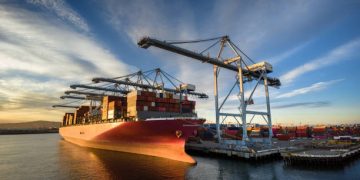The shipping industry is experiencing increasing pressure to enhance supply chain transparency, driven by tightening regulations and the growing emphasis on ESG (Environmental, Social, and Governance) reporting. Organizations across the maritime sector, including ports, shipyards, suppliers, and operators, are placing greater focus on understanding their partners’ performance regarding labor standards, human rights, and environmental practices. Initially, vessel owners and operators in Norway and the European Union faced pressure to adhere to ethical sourcing programs and report on labor practices. This interest is now expanding to the Middle East and Asia, particularly where carriers are handling cargo for Western clients.
Despite the gradual spread of regulatory requirements and the evolving best practices, the topic of supply chain due diligence has received limited attention until recently. While some skepticism remains about ESG in shipping, vessel operators are increasingly addressing these issues more seriously. The focus is shifting from a superficial engagement to a recognition of immediate risks. Even in the absence of detailed national legislation, there is a growing trend to align with global standards, driven by reputational risks and scrutiny from media, NGOs, and international organizations. Key drivers for this increased focus include the European Union’s Corporate Sustainability Reporting Directive (CSRD) and the Corporate Sustainability Due Diligence Directive (CSDDD). These regulations introduce new reporting requirements for maritime companies regarding social and environmental credentials.
The EU regulations are expected to impact approximately 50,000 companies globally, with compliance required for EU-domiciled businesses and non-EU companies operating in the EU by 2028/29. Countries like Canada, Australia, and Singapore are developing similar regulations or providing voluntary guidance on due diligence from a human rights perspective. Concerns about supply chain conditions persist, particularly in construction and repair facilities in the Middle East and Asia, where audits have revealed issues such as debt bondage and forced labor. Some companies have made superficial commitments to addressing modern slavery, but a deeper analysis often reveals gaps in their efforts.
Maritime lawyers Norton Rose Fulbright have highlighted the high risk of modern slavery in the maritime shipping industry due to vulnerabilities faced by seafarers and the fragmented regulatory oversight. The industry’s standards vary widely, and issues are often exacerbated by complex supply chains and inadequate enforcement. Addressing ESG and supply chain reporting requirements can be challenging, especially for large fleets. Many companies rely on manual processes and spreadsheets, which may result in inconsistent data quality and inefficient reporting practices. The industry faces pressure to streamline these processes, avoid duplication, and collaborate on data sharing to improve transparency and efficiency.
Stay informed on supply chain report news insights at The Supply Chain Report. For more on international trade, see ADAMftd.com for free tools.
#SupplyChainTransparency #ESGReporting #ShippingIndustry #GlobalTrade #MaritimeCompliance















